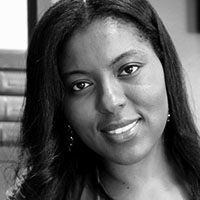Outrage over the Oscar snubbing of Selma, especially in its failure to recognize David Oyelowo and Ava DuVernay in the key Best Actor and Best Director categories, has been loud. Twitter pushed back with the trending hashtag #OscarsSoWhite, Spike Lee said, “F*ck ‘em,” and Saturday Night Live led its recent Kevin Hart-hosted telecast off with a Martin Luther King, Jr. skit addressing the disappointing reality. Not since 1998 has the Oscars failed to nominate a single person of color in any acting category. That this all went down just prior to the MLK holiday weekend made the knife cut even deeper.
And while Selma’s box office numbers are still creeping towards $30 million, its cultural impact is indeed much greater. This past Friday, President Obama hosted a special White House screening of the film with key Selma cast and crew in attendance. And during the Martin Luther King, Jr. Center for Nonviolent Social Change’s Annual Salute to Greatness Awards Dinner, held January 17, former president Bill Clinton, one of the esteemed 2015 honorees, had both Dr. King and Selma on his mind.
Good-naturedly referencing his friend Andrew Young—who marched with King and is prominent in the film—early in his speech, Clinton told the sold-out crowd, “I saw Andy earlier today and I said, ‘Andy, I just watched Selma. Were you ever that thin?’ (eliciting thunderous laughter) and he said yes, he was, that they were dodging so many bullets in droves they all used to be thin.”
As he continued to speak, he got decidedly more serious. “If you haven’t yet, go see the movie Selma,” he insisted, “and you will see the enormous pressures imposed on the King family and friends.” Clinton made it clear, however, that it was King’s philosophy of a “beloved community” that Selma most affirmed for him. “I was reminded all over again when I was sitting through Selma,” he shared.
“You know it wasn’t like I didn’t live through it,” the 68-year-old Clinton confided, “and I swear [it was] just like it was the first time. And, when they went across the bridge the second time, I stood up and started cheering all by myself and I roared like it was a surprise. But I was just evidence to the fact that we all want to live in a beloved community. We all want to think that we can have a home. We all want to think we can do great things because we have a launching pad,” he preached.
“Fifty years ago a lot of people took a lot of chances walking across the Edmund Pettus Bridge, just showing up at the church one Sunday in Birmingham, driving people back home after they had been a part of some group or activity,” he later emphasized. “To get up and walk through the day and breathe was a chance.”
Not losing sight of Dr. King’s dedication beyond 1965 and Selma, Clinton said, “It is very important to remember that, at the end of his life, Dr. King was in Memphis, across the river from my native state, helping the sanitation workers on his way to kick-off the Poor People’s Campaign in Washington D.C. because the beloved community is about the inclusive economics of giving everybody a chance to work and be rewarded for it and to rise as high as they can.”
And perhaps this is what most angers people about this year’s Oscar nominations. Ultimately the makeup of the Academy, which is 93 percent white, 76 percent male, and an average age of 63, mirrors those old, white men in Selma and throughout the South who used their power to silence the voices—artistic, or otherwise—of those unlike themselves. DuVernay and Oyelowo have brought the pages of history so thrillingly alive that they’ve captured the attention of two of our nation’s most esteemed leaders. And if one of those leaders—very much an old white guy like most of the Academy—can get it right, why can’t they?
Ronda Racha Penrice is a freelance writer based in Atlanta and the author of African American History For Dummies. Follow her @rondaracha.



